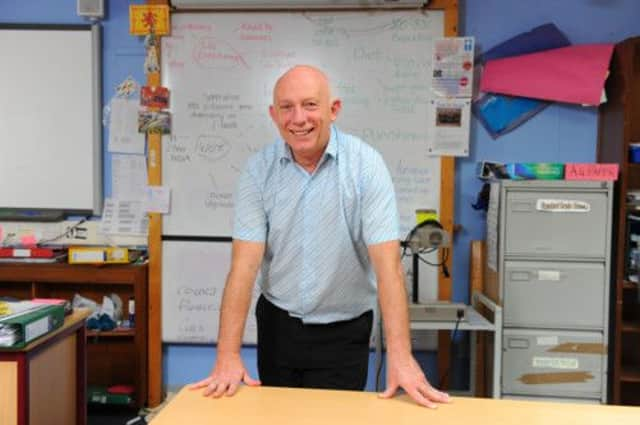Hugh Reilly: Cut jargon and let the ideas breathe


I recall a psychologist once disbursing advice as to how to deal with a troubled lad who reacted violently to overt praise. The shrink invited me to wink at the wildly aggressive pupil if he showed any interest in doing schoolwork, such as picking up a pencil without devouring it. When I expressed some fear that the violent teenager may misinterpret a middle-aged man winking at him, the psychologist, in a Zen-like tone, said it would be a journey of discovery for me. When I asked him to ride shotgun, his response was a firm “No”.
To be fair, there are some education psychologists worth listening to. One such person is Guy Claxton, professor of learning sciences at the University of Winchester, who spoke recently at the annual gathering of Scotland’s education psychologists. He is the latest of the professional Johnny-come-latelys whose damning criticism of the jargon surrounding the Curriculum for Excellence (CfE) has brought down the walls that had stubbornly resisted the despairing cries of teachers.
Advertisement
Hide AdAdvertisement
Hide AdThe alarm sounded by Professor Klaxon, sorry, Claxton, concerns the four so-called capacities. For example, what does “successful learners” really mean? If it means that kids have become cuter as to how to pass exams, perhaps they have successfully learned the wrong message. Under CfE, facts have been shunted into the shed occupied by Thomas the Tank Engine’s brother born on the wrong side of the tracks.
Hitherto, I had believed knowledge was power and hated to think that my years spent reading Look and Learn magazine had been as futile as Labour’s Johann Lamont earnestly rehearsing her inaugural speech as First Minister. However, I am coming round to the CfE view that imparting skills which enable youngsters to access information is more important than remembering dates and events. (Having said that, I really enjoy the schadenfreude of watching contestants on The Million Pound Drop lose their entire stack as a consequence of choosing side-splitting answers to general knowledge questions).
Claxton also takes issue with the capacity “responsible citizen”. Who, he asks, decides the definition of a responsible citizen? While membership of political parties has shrunk faster than a Rangers bank account, many individuals have discovered the power of extra-parliamentary activity. Unfortunately, many forms of direct action are deemed irresponsible by the political elite, such as this summer’s action by UK Uncut that temporarily closed branches of HSBC over claims the company was a corporate tax avoider.
What does a “responsible citizen” do when his government is unresponsive to the voices of the people? Along with 100,000 or so others, I marched in Glasgow against Blair’s looming war in Iraq; more than two million responsible citizens did likewise in London, all in vain.
A responsible citizen should vote, but what if he or she resides in a safe seat where any vote other than for the winner is a wasted vote? Is it irresponsible not to visit the polling booth or a logical response to a nonsensical electoral system? In my opinion, most politicians perceive responsible citizenry begins and ends with picking up dog poo.
Claxton is spot-on when he queries why education decision-makers insist on using unnecessary jargon that succeeds in baffling parents. “Interdisciplinary” is a word only loved by the extreme wing of the Scrabble Patriotic Front – wouldn’t it be much simpler to say children shouldn’t think in boxes, that many school subjects share common elements?
The language of CfE is aspirational but the rationale is clear-cut: young people should emerge from school equipped to deal with the challenges of living and working in a fast-changing society. Under Michael Gove, the English system is becoming a test-driven monster. A few minutes in the company of an education psychologist would convince parents the Scottish model offers the best hope for our children.